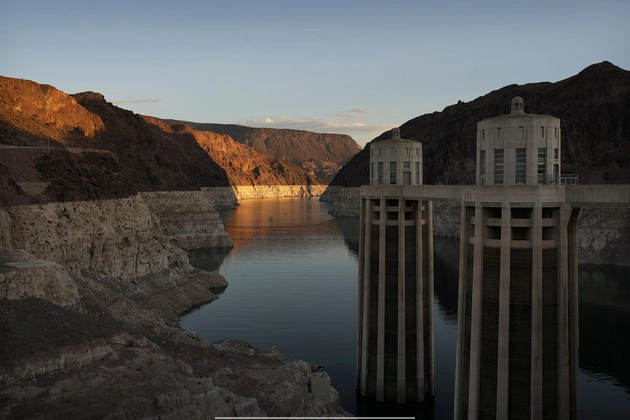
A Native American tribe with a powerful water claim had an ultimatum for the Trump administration: Release money to protect the Colorado River — or fight over the future of the most important river in the West.
The Trump Administration’s Response
Uncharacteristically, the Trump administration backed down.
The Interior Department released $105 million eight days later to repay the tribe for work it had done to line leaky canals and take other measures to protect a waterway that supports farms and cities in seven states.
Victory for Arizona’s Gila River Indian Community
It was a victory for Arizona’s Gila River Indian Community — and a rare success in cities, farmers and tribes’ ongoing fight over drought funding from Democrats’ signature climate law, the Inflation Reduction Act.
The Western Officials’ Concerns
But the episode last month, previously unreported, underscores the alarm that Western officials are feeling over the Trump administration’s freeze of hundreds of millions of dollars in federal funding for the waterway, which supports 40 million people and a $1.4 trillion economy but has been gripped by megadrought for more than two decades.
The Gila River tribe is still one of the few entities to have its funding freed up. Most entities with federal contracts for water-saving work are still waiting to find out if they’ll be paid.
Unprecedented Moves by the Trump Administration
And the freeze is just one of a series of unprecedented moves the Trump administration has made that are worrying the officials charged with keeping taps running and irrigation water flowing across a region that spans a broad swath of the West, including the cities of Denver, Phoenix, Los Angeles and San Diego.
That includes the president’s day-one executive order to boost California water deliveries that led to an abrupt release of billions of gallons that nearly flooded downstream farms.
Challenges in Water Management
The ongoing funding interruption is throwing a wrench into the works at a precarious moment. The states that share the perennially oversubscribed waterway are trying to write new rules to govern it — and negotiators see the next few months as the window to stave off paralyzing litigation.
The federal drought dollars were a crucial component of those negotiations.
Impact on Negotiations and Water Conservation
“This is now a major, major problem,” said Sen. Mark Kelly (D-Ariz.), who has sent multiple letters to Interior Secretary Doug Burgum on the freeze of payments from a $4 billion pot in the Inflation Reduction Act that has been going to pay cities, farms and tribes to forgo water deliveries and funding major infrastructure projects that conserve water over the long term.
Despite the challenges, the efforts to secure a sustainable future for the Colorado River continue amidst uncertainties surrounding federal funding and administrative decisions.
Conclusion
As water conservation efforts face obstacles from funding freezes and policy decisions, stakeholders across the region are navigating complex negotiations to ensure the long-term viability of the Colorado River. The impact of federal funding disruptions underscores the critical need for collaboration and sustainable solutions in water management.











